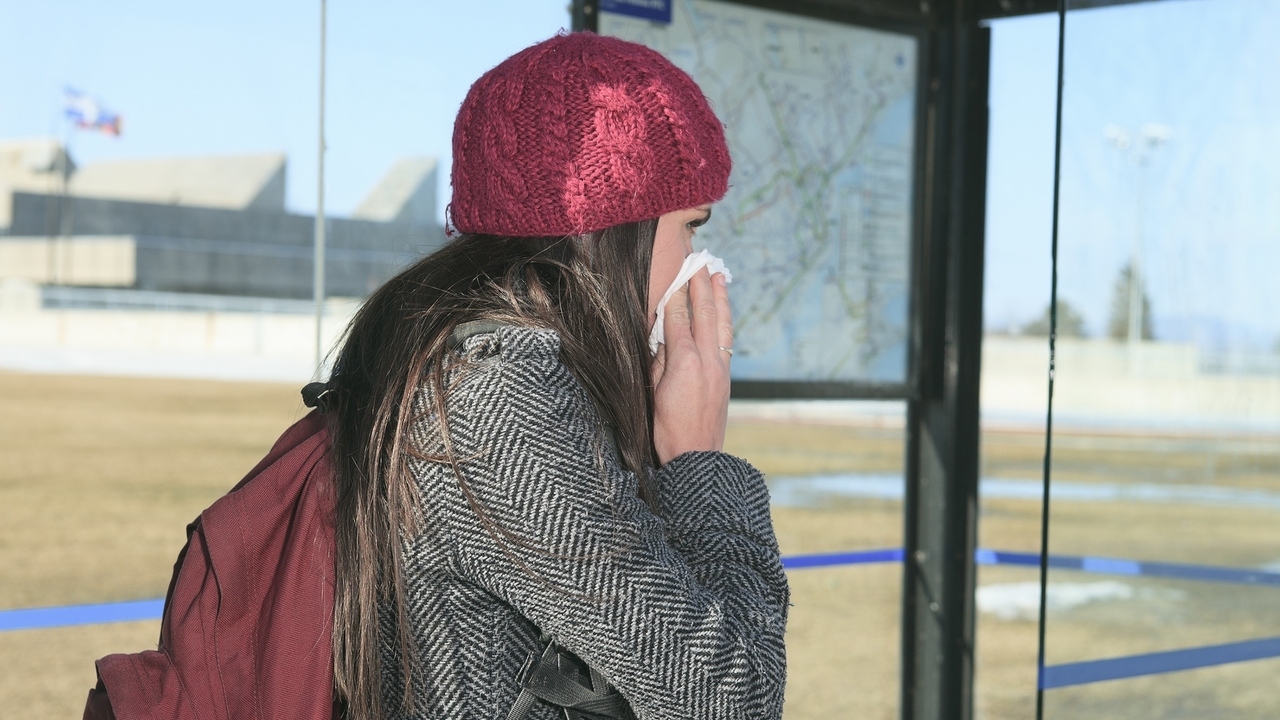 Olesya Shelomova/fotolia
Olesya Shelomova/fotolia
What is Hamman-Rich Syndrome
Hamman-Rich Syndrome is also known as acute interstitial pneumonia. It is an uncommon type of pneumonia for which researchers have not yet found a cause (idiopathic). It affects otherwise healthy individuals. The underlying condition may worsen without symptoms appearing for a long period of time, but when the symptoms do manifest they come on very suddenly and "acutely".
The condition received its name from the doctors who discovered the disease in 1939, Drs. Hamman and Rich.
Acute interstitial pneumonia has similar symptoms to acute respiratory distress syndrome, and may be misdiagnosed as such.
Pneumonia results when tissues of the lungs become inflamed in reaction to infection. Interstitial pneumonia, by comparison, is a long-term condition that affects the connective tissue of the lungs. The inflammation is caused by the build up of white blood cells and plasma in the alveoli (the tiny sac that facilitate the carbon dioxide/oxygen exchange in the bloodstream). With interstitial pneumonia, the inflammation also extends into the bronchioles - small airways that branch off into the lungs.
If the inflammation lasts long enough, the fluid hardens into scar tissue (fibrosis). If there is enough scar tissue, over time alveoli will be destroyed and the space filled with cysts. Over time, the bronchi and the walls of the bronchi widen, or are destroyed resulting in the lungs shrinking.
Sixty percent of those with acute interstitial pneumonia die within six months of the appearance of symptoms.
Symptoms of Hamman-Rich Syndrome
As stated earlier, symptoms of Hamman-Rich Syndrome or acute interstitial pneumonia are similar to those observed in acute respiratory distress syndrome, which are:
- shortness of breath
- rapid, shallow breathing
- crackling or wheezing sounds in the lungs
- cyanosis (blue tinge) to the skin
- heart and brain function issues (rapid heart rate, difficulty concentrating, forgetfulness) because of long-term reduced oxygen supply
Diagnosis and Treatment of Acute Interstitial Pneumonia
Diagnosis of acute interstitial pneumonia is usually confirmed through CT scans, lung biopsy, and tests that measure pulmonary function.
The goal of treatment is to prevent complete respiratory failure and keep the patient alive and comfortable until the condition resolves. Treatment often involves use of a ventilator in the event of respiratory failure, and administration of corticosteroids (although it is not known how effective these medications are).
For those who survive, lung function will improve over time, but the condition may return.
Sources: www.uptodate.com; www.wrongdiagnosis.com; www.medfriendly.com; www.merck.com






Add a Comment72 Comments
My dad had recently passed away from this disease back November of 2011. He had shortness of breath for about a month and could barely walk from the bathroom to his bed (about ten feet) without need to sit down and catch his breath. He was only 57 and his condition worsened and it only took about three weeks after being admitted to the hospital for it to run its course and unfortunately he wasnt healthy enough for a lung transplant. Is there any new research or information on theis disease?
April 4, 2012 - 11:30amThis Comment
I just lost my husband to this disease..he was 51. It started out with weeks of coughing, he went to the Dr and thought he had a respiratory infection. A couple weeks later his cough still wouldnt subside so we went back to the Dr and he did a chest xray which showed pneumonia. After a couple of weeks with no improvement ans wrsening shortness of breath, I took him to the ER and they did another chest xray which still showed "walking" pneumonia, they gave him IV Levaquin and sent him home. He started to get worse so my Dr admitted him to the hospital. 3 weeksof several different medications, tests ,treaments and tests..he died. What's so hard about this disease is their is no indication on how he got it which leaves me with very little closure.
November 13, 2012 - 4:03pmThis Comment
So sorry for your loss.
My research shows that there is no definitive "how he got it" answer. Doctors don't even know and can't separate it from "ordinary" pneumonia until the symptoms don't subside and then they start looking for other answers for the symptoms. One of those eliminate all other possibilities type things. Unfortunately, weedling out all the things that it's not can take a while before reaching the AIP diagnosis.
November 14, 2012 - 9:52amThis Comment
I haven't looked at the research since I wrote this article, and it took quite a bit of Internet digging to find that information at the time.
I will see if I can unearth anything new.
April 5, 2012 - 7:30pmThis Comment
My father in law is in the hospital as I write this diagnosed with AIP. He complained of chest pains 2 weeks ago and they found fluid in his pleural sac and thought he had pleurisy. A few days later, he went back to the hospital and they said there was now fluid IN his lungs and that they thought it was pneumonia. Within 3 days, he was in the ICU, and a couple days later went from an O2 mask to a breathing tube. They are treating him with steroids, but have seen no real improvement so far. The doctors are not particularly optimistic
April 1, 2012 - 10:25amDoes there seem to be a correlation between how quickly/severely it presents and the survivability? It sounds from people's notes that maybe it is more likely to survive this if it comes on more slowly. I am hoping that is not the case. He is a 76 year old.
Looking for some hope...
This Comment
As I am not a medical professional, it would be inappropriate to comment on that. I can only go by what I've researched and that appears to show that there isn't a correlation. As with most conditions, survivability is usually better if diagnosed early. Perhaps they caught it early enough in the process that it'll increase his chances. Unfortunately, the prognosis for people with this condition is not generally good. It's called "acute" because the symptoms come on suddenly and severely.
I'm sorry, I'm not sure that was very helpful. Certainly let us know what happens.
April 2, 2012 - 7:30amThis Comment
My Husband died at 43 years old on 1/08/12 to this disease. It started out as a dry cough in September. His Dr. said it was allergies in Oct, only to go back in Nov and asked for an X-ray. Now it was pneumonia. When antibiotics didn't work he went to his lung specialist. After a bronchoscope and lung biopsy Dec 23 still didn't know what this was. My husband went on the ventilator Dec 26 and never got any better. Jan 8 we had to take him off the ventilator, his X-rays were terrible. Leaves behind a wife and 6 kids 22months-17 years.
February 8, 2012 - 9:03pmThis Comment
I have found that myself and another person were taking the anti-biotic Bactrim right before we got sick. Anyone else?
November 29, 2011 - 5:53pm[email protected]
This Comment
xak2p8We lost our 21 year old daughter to this disease on july 9 2009. she started out with coughing up blood and fatiuge.We took her to the ER and she was diagnosed with pneumonia in both lungs ..She spent 4 days in the hospital and sent home with steriod inhaler within 2 days she was coughing blood again and went back to the ER.Her doctor called a specialist and she was immediatly put in a drug induced coma via paralitic drugs and put on a respirator.Our daughter Mandy, was not responding to treatment and we were told She would not survive.After 5 weeks her kidneys failed and she passed. The hard part was the doctors stopped the paralitic drugs for a while so we could tell her what was going to happen. she was so brave to accept her fate.We at least were able to tell her that we loved her and she will see us again .I write this with tears running down my face. Thanks for the space to tell her story.God bless you all.
November 29, 2011 - 10:51amThis Comment
Thank you for sharing your story. So sorry for your loss. That's the hard part about this disease; it's often too late when they do figure out what's actually wrong. Hopefully, as research continues into this disease, it will be easier for doctors to distinguish between Hamman-Rich and pneumonia so appropriate treatment can be started earlier.
November 29, 2011 - 1:56pmThis Comment